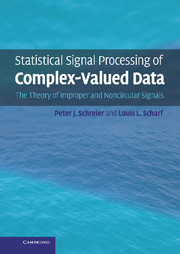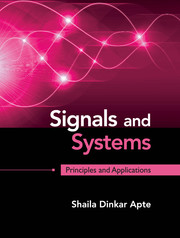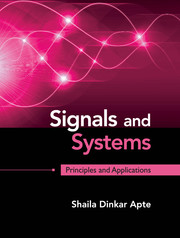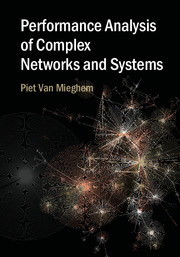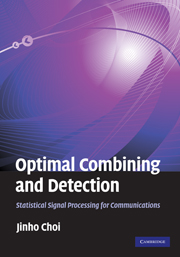Statistical Signal Processing of Complex-Valued Data
Complex-valued random signals are embedded in the very fabric of science and engineering, yet the usual assumptions made about their statistical behavior are often a poor representation of the underlying physics. This book deals with improper and noncircular complex signals, which do not conform to classical assumptions, and it demonstrates how correct treatment of these signals can have significant payoffs. The book begins with detailed coverage of the fundamental theory and presents a variety of tools and algorithms for dealing with improper and noncircular signals. It provides a comprehensive account of the main applications, covering detection, estimation, and signal analysis of stationary, nonstationary, and cyclostationary processes. Providing a systematic development from the origin of complex signals to their probabilistic description makes the theory accessible to newcomers. This book is ideal for graduate students and researchers working with complex data in a range of research areas from communications to oceanography.
- Systematic development from the origin of complex signals to their probabilistic description makes the theory of complex signals accessible to new-comers
- Covers the three main branches of signal processing - detection, estimation, and signal analysis - for an all-inclusive account of the main applications
- Shows why complex-valued descriptions are more powerful and insightful, enabling readers to rephrase their results for new interpretations and insights
Product details
February 2010Hardback
9780521897723
330 pages
3 × 179 × 20 mm
0.81kg
55 b/w illus. 3 tables
Available
Table of Contents
- 1. The origins and uses of complex signals
- 2. Introduction to complex random vectors and processes
- 3. Second-order description of complex random vectors
- 4. Correlation analysis
- 5. Estimation
- 6. Performance bounds for parameter estimation
- 7. Detection
- 8. Wide-sense stationary processes
- 9. Nonstationary processes
- 10. Cyclostationary processes
- Appendix A. Rudiments of matrix analysis
- Appendix B. Complex differential calculus (Wirtinger calculus)
- Appendix C. Introduction to majorization.

